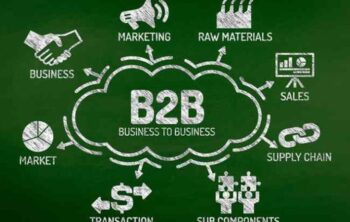Wholesale businesses have found new opportunities for growth and expansion. Wholesale ecommerce allows suppliers and manufacturers to reach a global audience, sell products in bulk, and establish lucrative partnerships with retailers. However, succeeding in the highly competitive wholesale ecommerce landscape requires a well-planned marketing strategy. In this article, we will explore some of the best marketing strategies that can help wholesale ecommerce businesses thrive and achieve their goals.
Wholesale for ecommerce refers to the process of selling goods to other businesses in large quantities at a discounted rate. It involves B2B (business-to-business) transactions, where the buyers are typically retailers, distributors, or other businesses. Unlike traditional retail ecommerce, wholesale ecommerce focuses on bulk orders, enabling businesses to purchase products at lower costs per unit.
The Importance of Marketing Strategies for Wholesale Ecommerce
For wholesale e-commerce businesses, having effective marketing strategies is essential for several reasons. Firstly, it helps attract potential buyers and generate leads. Secondly, a strong marketing approach establishes brand visibility and credibility, which is crucial for gaining the trust of potential partners and customers. Moreover, an optimized marketing strategy can help businesses stay ahead of the competition and adapt to changing market trends.
Identifying Your Target Audience
The foundation of any successful marketing strategy is a deep understanding of the target audience. Wholesale ecommerce businesses should conduct thorough market research to identify their ideal customers. Factors such as industry, location, business size, and purchasing behavior should be taken into account. Once the target audience is defined, tailor marketing efforts to address their pain points and preferences.
Building a Strong Online Presence
Having a robust online presence is vital in today’s digital age. Wholesale ecommerce businesses must invest in creating a professional website that showcases their product offerings, company information, and contact details. The website should be visually appealing, user-friendly, and optimized for search engines (SEO). An easy-to-navigate website helps potential buyers find the products they need quickly.
Leveraging Social Media Marketing
Social media platforms have become powerful tools for businesses to engage with their audience and promote their products. Wholesale ecommerce businesses can leverage platforms like Facebook, Instagram, LinkedIn, and Twitter to share product updates, industry news, and valuable content. You can also use yafutuer.com for content creation. Engaging with followers, responding to inquiries, and running targeted ad campaigns can significantly boost brand awareness.
Implementing Email Marketing Campaigns
Email marketing remains a highly effective way to nurture leads and maintain customer relationships. Sending personalized and relevant content through email campaigns can keep wholesale buyers informed about new product launches, promotions, and industry insights. However, it’s essential to avoid spammy tactics and focus on providing value to the recipients.
Embracing Influencer Marketing
Influencer marketing has gained immense popularity in recent years. Collaborating with influencers in the B2B space can help wholesale ecommerce businesses reach a broader audience. Partnering with industry experts and thought leaders can enhance brand credibility and drive more traffic to the business’s website.
Utilizing Content Marketing
Content marketing involves creating and distributing valuable and informative content to attract and retain customers. For wholesale ecommerce businesses, this could include blog posts, product guides, whitepapers, and educational videos. High-quality content establishes the business as an industry authority and encourages potential buyers to explore the product offerings.
Monitoring and Analyzing Performance
To ensure the effectiveness of marketing efforts, wholesale ecommerce businesses should regularly monitor and analyze their performance metrics. Tools like Google Analytics provide valuable insights into website traffic, user behavior, and conversion rates. By analyzing this data, businesses can identify areas for improvement and optimize their marketing strategies accordingly.
The Power of Customer Reviews and Testimonials
Positive customer reviews and testimonials can significantly influence purchasing decisions. Wholesale ecommerce businesses should encourage their customers to leave feedback and testimonials after a successful transaction. Displaying these reviews on the website can build trust and confidence in potential buyers.
Providing Exceptional Customer Service
Outstanding customer service is the backbone of any successful business. Wholesale ecommerce businesses should prioritize providing exceptional customer support, resolving issues promptly, and maintaining clear communication channels. A satisfied customer is more likely to become a repeat buyer and recommend the business to others.
Maximizing Mobile-Friendly Experience
With the growing use of smartphones, having a mobile-friendly website is non-negotiable. Wholesale ecommerce businesses must ensure that their website is optimized for mobile devices, offering a seamless browsing experience for potential buyers on the go.
Final Thoughts
In conclusion, wholesale ecommerce presents vast opportunities for businesses to grow and succeed in the digital marketplace. By implementing these effective marketing strategies, wholesale ecommerce businesses can establish a strong online presence, attract valuable customers, and foster long-term partnerships with retailers and distributors. As the ecommerce landscape continues to evolve, adapting and refining these strategies will be crucial for staying ahead of the competition and thriving in the B2B ecommerce realm.






